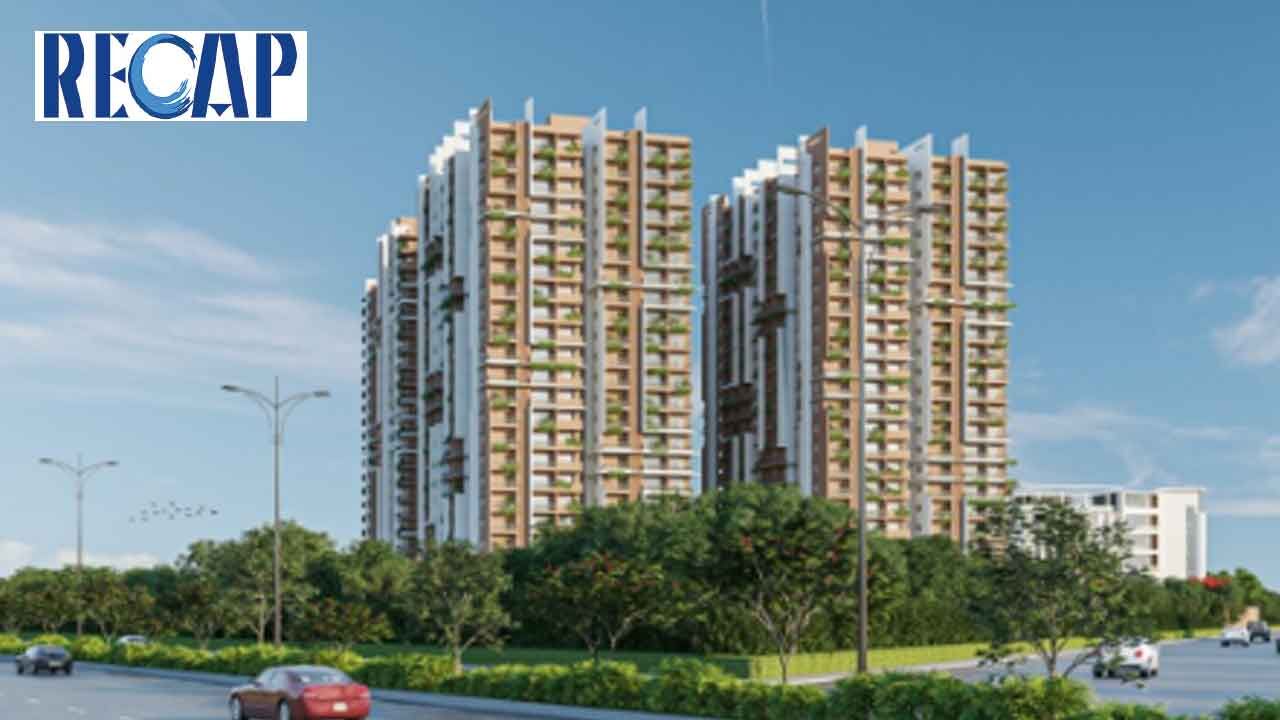Mumbai: The year 2024 marked a turning point with significant advances in the adoption of technology, sustainable building practices and affordable housing solutions – setting the sector up for an even brighter future.
Affordable housing proved to be a cornerstone of industry growth in 2024, meeting the urgent need for accessible housing in a rapidly urbanizing India. Government initiatives such as the Pradhan Mantri Awas Yojana (PMAY) and policy reforms have spurred the introduction of inclusive housing projects for middle and low-income families.
2024 was a landmark year for Real Estate Investment Trusts (REITs) in India. These investment vehicles have gained significant traction and provide domestic and international investors with efficient access to the Indian real estate market. The success of REITs has increased market liquidity and increased investor confidence, reflecting the maturity of the sector.
Foreign investment also saw a significant increase as global players were attracted by India's economic growth, infrastructure development and growing middle class. This influx of capital has not only strengthened the commercial real estate market, but also accelerated modernization and innovation across the industry.
According to Mordor Intelligence, the real estate market in India is expected to reach $856 billion by 2029, growing at a compound annual growth rate (CAGR) of 8.71 percent from the valuation of $518.5 billion in 2024. Alone In the case of residential real estate, market launches reached a record level: an estimated 280,000 to 290,000 units were launched in the seven largest cities in 2024 India introduced. This represents a 15% year-on-year increase in product launches, driven by strong demand in the mid- and premium segments. Meanwhile, adoption of co-working spaces increased sharply, with 54% of companies opting for flexible office facilities to adapt to hybrid working trends, bolstering the growth of the commercial sector.
The year saw an unprecedented acceleration in technology adoption across the real estate industry. AI-powered property management systems have redefined operational efficiency by providing personalized tenant services and enabling real-time monitoring. From streamlining maintenance processes to improving tenant satisfaction, technology has become an essential tool.
Smart infrastructure took center stage, transforming urban life with IoT-enabled solutions that optimize energy consumption, increase security and improve lifestyles. Smart waste management, automated air conditioning and connected ecosystems are no longer futuristic concepts, but current realities that are leading cities towards greater sustainability and quality of life.
Concerns about climate change have pushed sustainability to the forefront of real estate priorities. The adoption of green certifications such as LEED and IGBC increased sharply in 2024, highlighting the sector's commitment to environmentally friendly practices. Solar panels, energy-efficient building materials and water-saving technologies have significantly reduced the carbon footprint of construction projects while providing cost savings for owners and tenants.
This pursuit of sustainability is not a passing trend, but a decisive change. Residential and commercial project developers are aligning themselves with global sustainability goals, ensuring that the sector remains a key player in creating a greener and more responsible future.
Speaking to Bizz Buzz, Vineet Dawar, President – Sales and Strategy, Elan Group says, “The year 2024 has been a milestone year for the Indian real estate sector and has demonstrated remarkable resilience and adaptability.”
The residential segment, particularly luxury real estate, continued its outstanding performance and received increased interest from both end-users and investors. In the NCR region, Gurgaon consolidated its position as a destination of choice, strengthened by strategic infrastructure projects such as completion of key phases of Dwarka Expressway and expansion of metro connectivity, he said.
According to a CREDAI report, Delhi-NCR recorded an impressive 32 percent year-on-year increase in property prices, the highest among eight major cities in India. These advancements have made Gurgaon a vibrant hub for residential and commercial development. Investors from other cities and even international markets have also started investing heavily in Gurugram, further fueling this growth. The sector's upward trend in new listings and home sales in 2023 sets the stage for sustained growth this year, with further momentum expected heading into 2025.
Rahul Singla, Director, Mapsko Group, said: “As we close the 2024 chapter, the Indian real estate sector has demonstrated exceptional resilience and innovation, emerging stronger and more dynamic than ever before.” This year has been a watershed moment with significant advancements in the adoption of technologies, sustainable building practices and a renewed focus on affordable housing initiatives.”
The success of REITs and the increasing adoption of green building certifications have underscored the industry's commitment to responsible growth. The integration of AI-driven property management systems and smart infrastructure has redefined urban living standards. Furthermore, the steady inflow of domestic and international investments underlines the confidence in the Indian real estate market as a global powerhouse.
